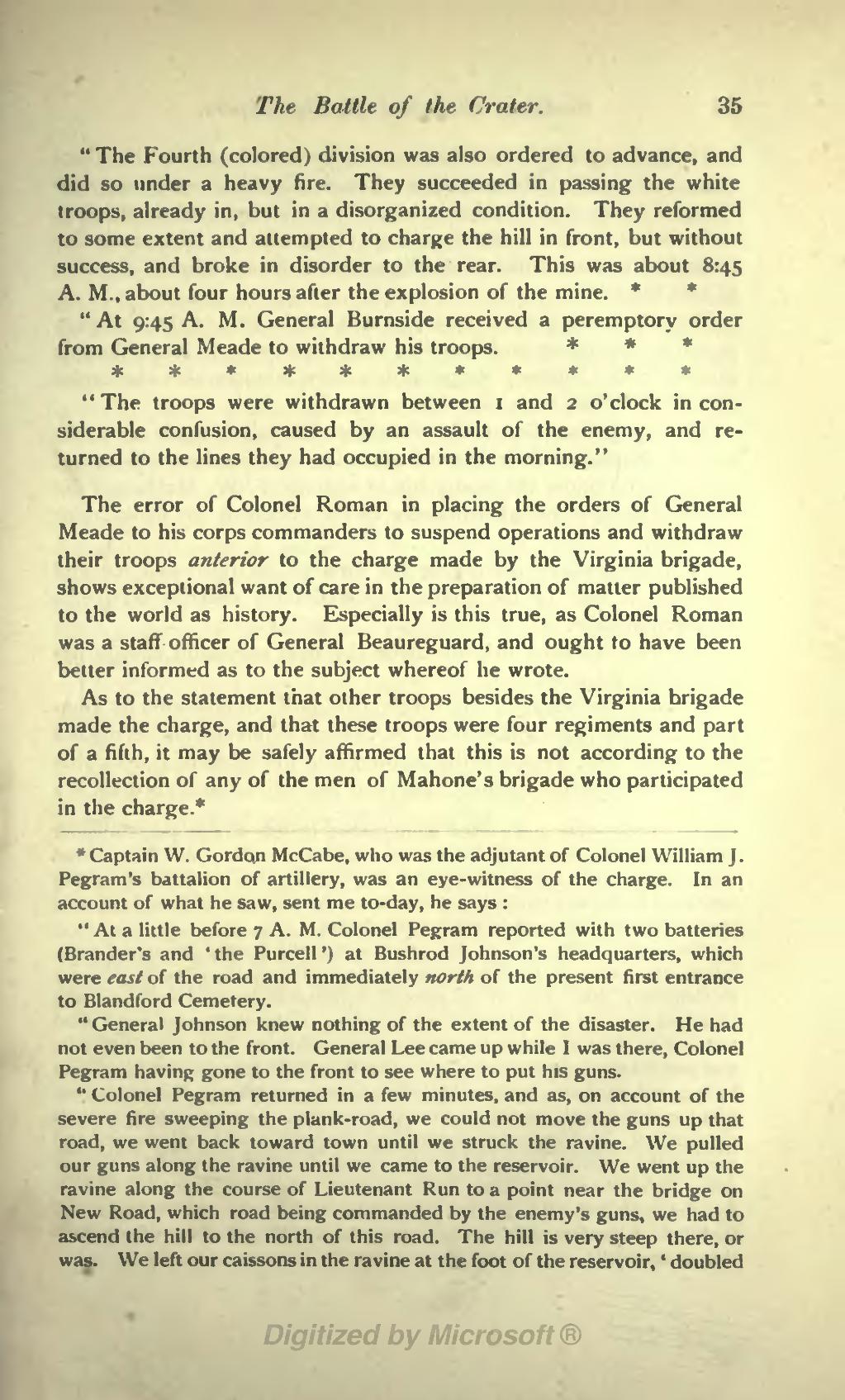The Battle of the Crater. 35
"The Fourth (colored) division was also ordered to advance, and did so under a heavy fire. They succeeded in passing the white troops, already in, but in a disorganized condition. They reformed to some extent and attempted to charge the hill in front, but without success, and broke in disorder to the rear. This was about 8:45 A. M., about four hours after the explosion of the mine.
" At 9:45 A. M. General Burnside received a peremptory order
from General Meade to withdraw his troops.
"The troops were withdrawn between i and 2 o'clock incon- siderable confusion, caused by an assault of the enemy, and re- turned to the lines they had occupied in the morning."
The error of Colonel Roman in placing the orders of General Meade to his corps commanders to suspend operations and withdraw their troops anterior to the charge made by the Virginia brigade, shows exceptional want of care in the preparation of matter published to the world as history. Especially is this true, as Colonel Roman was a staff officer of General Beaureguard, and ought to have been better informed as to the subject whereof lie wrote.
As to the statement that other troops besides the Virginia brigade made the charge, and that these troops were four regiments and part of a fifth, it may be safely affirmed that this is not according to the recollection of any of the men of Mahone's brigade who participated in the charge.*
- Captain W. Gordon McCabe, who was the adjutant of Colonel William J.
Pegram's battalion of artillery, was an eye-witness of the charge. In an account of what he saw, sent me to-day, he says :
" At a little before 7 A. M. Colonel Pegram reported with two batteries (Brander's and ' the Purcell ') at Bushrod Johnson's headquarters, which were east of the road and immediately north of the present first entrance to Blandford Cemetery.
" General Johnson knew nothing of the extent of the disaster. He had not even been to the front. General Lee came up while I was there, Colonel Pegram having gone to the front to see where to put his guns.
" Colonel Pegram returned in a few minutes, and as, on account of the severe fire sweeping the plank-road, we could not move the guns up that road, we went back toward town until we struck the ravine. We pulled our guns along the ravine until we came to the reservoir. We went up the ravine along the course of Lieutenant Run to a point near the bridge on New Road, which road being commanded by the enemy's guns, we had to ascend the hill to the north of this road. The hill is very steep there, or was. We left our caissons in the ravine at the foot of the reservoir, ' doubled
